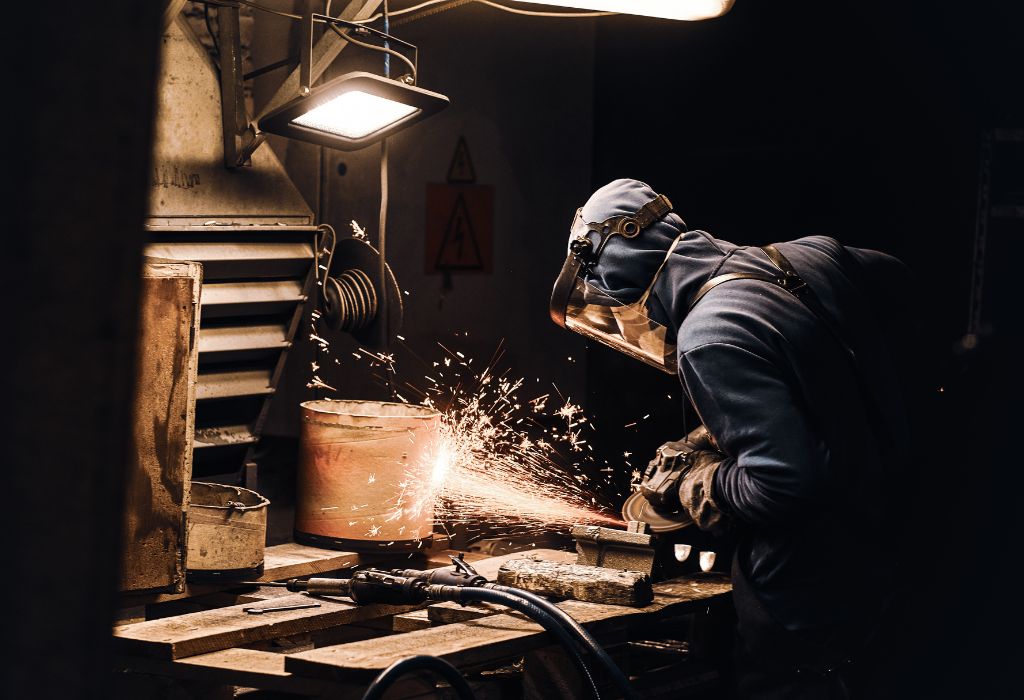A welding inspector steps onto a busy construction site where sparks fly and pressure mounts with every weld.
One decision from that inspector can determine whether a project moves forward or grinds to a halt.
Many wonder, how much do welder inspectors make for carrying such responsibility.
The answer is layered, shaped by certifications, industry, and the sheer weight of quality assurance in high-stakes environments.
Welding inspection is not only about identifying cracks or defects. It is about safeguarding structural integrity, ensuring safety, and protecting millions of dollars in investments.
The demand for skilled inspectors continues to rise. According to ZipRecruiter, the average welding inspector earns about $26.21 per hour in the United States source.
Glassdoor data shows total annual pay for Certified Welding Inspectors often reaches $78,000 to $85,000, depending on experience and industry source.
These numbers spark curiosity for newcomers considering inspection as a career and for welders planning the jump into certification.
The potential to earn more grows with specialized training, advanced codes, and high-risk sectors.
This guide breaks down salaries from entry-level to senior roles, examines how certifications like CWI and NDT affect income, and highlights the industries paying the most. It also provides insight into hourly versus salaried structures, per diem, overtime, and negotiation tactics.
By the end, the question how much do welder inspectors make will no longer be a mystery. Instead, readers will understand what shapes pay and how to position themselves for higher earnings in this vital trade.
What a Welding Inspector Actually Does (and Why It Drives Pay)
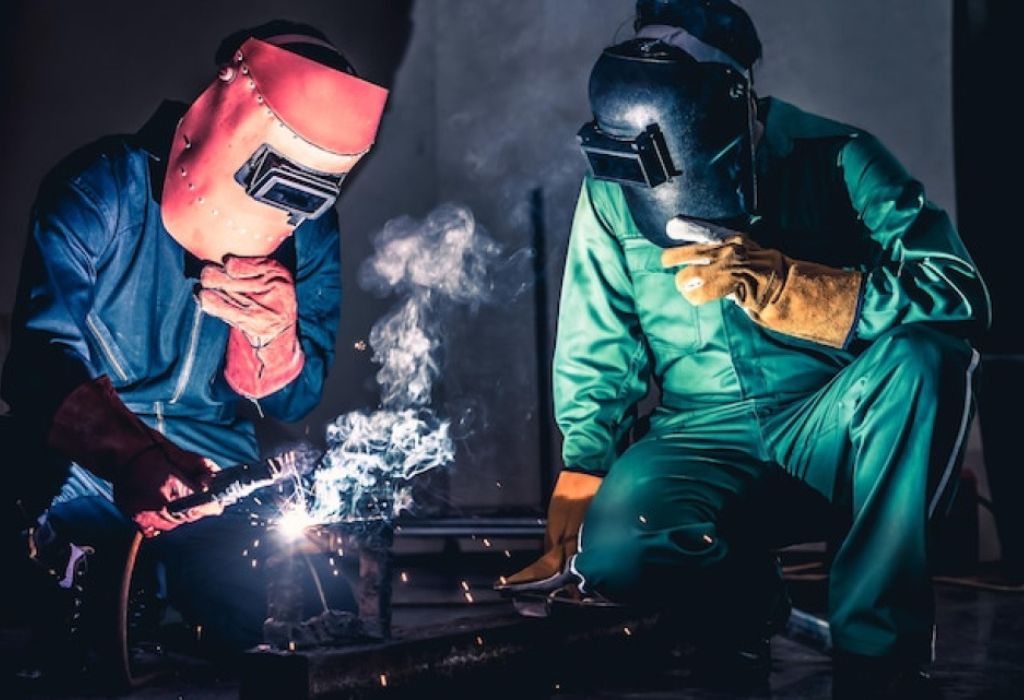
A welding inspector is responsible for ensuring every weld meets the required standards of safety, durability, and code compliance. This responsibility gives the role significant influence over project timelines and costs.
Daily tasks include visual inspections, reviewing WPS and PQR documents, monitoring welder performance, and coordinating non-destructive testing methods such as UT, MT, PT, and RT. These checks help prevent structural failures and costly rework.
The role also demands strong knowledge of codes like AWS D1.1 and ASME Section IX. Inspectors who master these codes are trusted to make critical decisions that affect multimillion-dollar projects.
Because of this high level of accountability, how much do welder inspectors make directly reflects their technical expertise and their ability to ensure compliance. Employers are willing to pay more for inspectors who reduce risk and maintain quality on site.
What is a CWI?
A Certified Welding Inspector (CWI) is an AWS-certified professional qualified to assess weld quality and ensure compliance with industry codes.
Does a welding inspector perform NDT tests directly?
Some inspectors are trained in NDT, but most coordinate the testing while certified Level II or Level III technicians perform it.
Why does code knowledge affect salary?
Familiarity with AWS, ASME, and API codes allows inspectors to handle complex projects, which often leads to higher pay.
Is a welding inspector the same as a QC inspector?
A QC inspector may oversee a wider range of quality processes, while a welding inspector specializes in weld quality and procedure compliance.
Do welding inspectors travel for work?
Yes, many roles require travel, and inspectors often receive per diem and overtime, which can significantly increase total earnings.
National Salary Snapshot: Ranges You Can Expect
Salary data helps illustrate how much welding inspectors earn nationwide. On average, welding inspectors make $26.21 per hour, or roughly $54,500 annually for a standard 40-hour week.
Certified Welding Inspectors typically earn between $70,000 and $95,000 annually, with many averaging around $85,000. Senior inspectors, especially in high-risk industries, may earn six figures.
Hourly roles are common on construction projects, with ranges often between $25 and $40 per hour. These roles also include overtime and per diem, which increase total compensation.
Different sources provide slightly different averages due to reporting methods. ZipRecruiter shows a national hourly average, while Glassdoor reports total annual pay including bonuses.
How much do welder inspectors make on average?
Around $26–$32 per hour or $65,000–$85,000 annually, depending on role and source.
What is a typical CWI salary?
CWIs generally earn $70,000–$90,000+, with experienced professionals often surpassing that range.
Are hourly roles common?
Yes, project-based positions frequently pay hourly and include overtime opportunities.
Do totals include bonuses?
Glassdoor and similar sites often include base pay plus additional compensation such as bonuses.
Is $100k realistic?
Yes, especially for inspectors in oil and gas, petrochemical, or heavy construction projects with overtime and travel.
7 Factors That Move Your Pay Up or Down
Welding inspector pay is not fixed. Several factors influence how much inspectors can earn in any given year.
Experience is one of the most important elements. Inspectors with years in the field command higher salaries than those just starting out.
Certifications such as CWI, NDT Level II, or API 510/570/653 significantly raise earning potential. These credentials open doors to higher-paying projects.
Industry and sector matter as well. Oil and gas and petrochemical jobs often pay more than light manufacturing or fabrication shops.
Location also plays a role. Cities with higher costs of living and regions with active construction booms offer better pay.
Union membership, shift differentials, and overtime policies further impact income. Traveling jobs often add per diem to the base pay, which boosts total compensation.
Which certification boosts pay fastest?
The AWS CWI plus at least one NDT Level II certification provides the biggest immediate bump.
Does industry matter?
Yes, oil and gas, petrochemical, and large-scale infrastructure projects pay more than standard fabrication.
How big is the location effect?
In high-cost areas like New York or San Francisco, inspectors often earn above national averages.
Union vs non-union?
Union sites can pay more with better benefits, while non-union sites may offer higher per diem for travelers.
Per diem worth it?
Yes, daily stipends for meals and lodging can add thousands of dollars annually.
Certification Premiums: CWI, NDT Levels, and API Tickets
Certifications directly influence how much welding inspectors earn. A CWI is often the minimum ticket to higher-paying jobs.
Inspectors who stack credentials such as NDT Level II UT/MT/PT/RT or API 510/570/653 can access specialized roles with higher day rates.
Industries such as aerospace and defense also value knowledge of strict codes like AWS D17.1, which adds to earning power.
Inspectors with advanced credentials not only secure higher salaries but also enjoy greater job stability. Employers rely on them for complex, high-risk inspections.
How much more for CWI vs non-CWI?
CWIs earn about $10,000–$20,000 more annually than non-certified inspectors.
Do API 510/570/653 add premiums?
Yes, they often result in significantly higher pay in oil and gas sectors.
Is Level II UT more valuable than PT/MT?
Yes, UT typically commands higher pay because it requires deeper technical knowledge.
Do aerospace codes change pay?
Yes, aerospace and defense projects often pay more due to stringent quality standards.
Does ASME IX knowledge matter?
Yes, understanding procedure and welder qualification requirements raises job value.
Entry-Level vs Senior: Career Ladder and Pay Progression
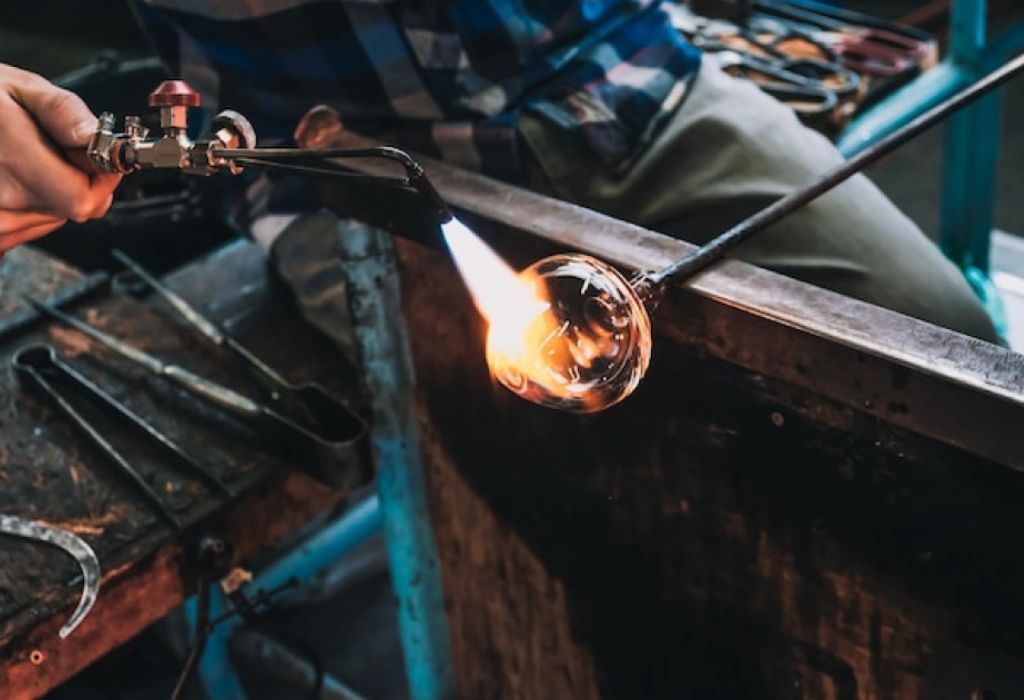
Welding inspection careers follow a clear progression from entry-level to senior roles. New inspectors often start around $50,000–$65,000 annually.
With certification and experience, pay rises quickly. A CWI with several years of experience can earn $70,000–$90,000+.
Senior inspectors, QA/QC managers, or those with multiple NDT certifications often exceed $95,000 annually. High-risk projects with overtime can push totals above six figures.
Specialists who master advanced methods or codes sometimes earn more than managers. Technical expertise is valued as much as leadership in many industries.
What do beginners earn?
Usually between $50,000 and $65,000, depending on region and employer.
When do earnings jump?
Pay increases sharply after achieving CWI and adding NDT credentials.
How fast to six figures?
Inspectors can reach six figures within a few years in high-paying industries with overtime.
Is management the only path up?
No, technical specialists with advanced NDT or API certifications also earn top salaries.
Do educators or engineers skew averages?
Yes, some CWIs work in training or engineering roles, which can affect reported averages.
Where the Money Is: Industries and Locations
Different industries pay welding inspectors differently. Oil and gas, petrochemical, and power generation consistently top the charts.
Shipbuilding, aerospace, and defense also offer competitive pay due to strict compliance standards. Structural steel, bridge work, and infrastructure projects pay well but often below petrochemical rates.
Geography is another key factor. States like New York average $73,800 annually, higher than the national median. Coastal cities and regions with booming construction pay inspectors more to meet demand.
Which industry pays best?
Oil and gas and petrochemical projects usually pay the most.
Top-pay metros?
High-cost areas like San Francisco or New York often offer the highest rates.
Is manufacturing lower?
Yes, light manufacturing and repetitive welding projects tend to pay less.
Do public infrastructure jobs pay well?
They offer stable pay and benefits, but usually less than petrochemical work.
Do remote sites pay more?
Yes, difficult-to-reach locations add per diem and hazard pay to base wages.
Hourly vs Salary, Overtime, and Per Diem Math
Hourly pay is common for project-based welding inspectors. Salaried positions are more common in corporate QA or permanent roles.
Overtime significantly boosts total earnings. Inspectors on outage projects often work 60–84 hour weeks, which can increase pay by 25–30%.
Per diem is another income booster. A daily stipend for meals and lodging can add thousands of dollars per year, especially for traveling inspectors.
Shift differentials also increase income for night or weekend work. Combined, these factors often push inspectors’ pay well beyond base salary.
Hourly or salary for most roles?
Most inspectors are paid hourly, especially on field projects.
How big can overtime be?
Overtime can add tens of thousands of dollars annually during turnaround seasons.
What is per diem?
It is a daily allowance for living expenses when traveling for work.
Do night shifts pay more?
Yes, many employers offer shift differentials for nights or weekends.
Are benefits better on staff jobs?
Yes, permanent staff roles typically include benefits, though base pay may be lower.
Real-World Benchmarks from Job Boards and Surveys
Salary reports vary by source, but they provide a consistent picture of earning potential. Indeed lists welding inspectors at about $65,000 annually.
Glassdoor data shows Certified Welding Inspectors often reach $78,000–$85,000, with senior inspectors earning more.
ZipRecruiter reports average hourly pay of $26.21, confirming that inspectors earn steady wages across industries.
AWS career guidance suggests that experienced inspectors and CWIs can expect $70,000–$95,000+ annually.
Why do sites disagree?
Each uses different data collection methods, such as surveys, job postings, or self-reports.
Which is most reliable?
The best approach is to cross-check several sources.
How current is the data?
Most job boards update their salary pages regularly.
Do titles affect numbers?
Yes, similar titles like QC Inspector or NDT Technician can skew results.
Are employer-specific pages useful?
Yes, they provide direct insight into actual pay ranges for certain companies.
How to Increase Your Welding Inspector Salary This Year
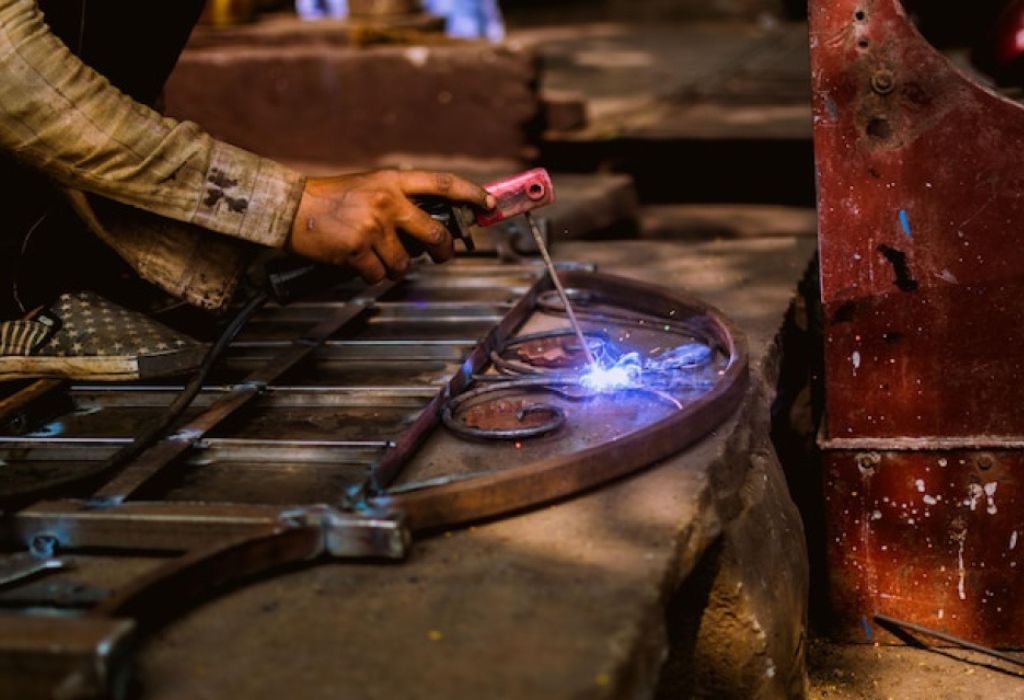
Welding inspectors can actively take steps to raise their pay. The most effective approach is adding certifications.
Achieving CWI is the first major step. Adding NDT Level II certifications, particularly UT, increases job opportunities.
API 510, 570, or 653 certifications open doors in petrochemical and refinery work, where pay is highest.
Inspectors should also develop strong soft skills. Clear documentation and communication can improve career advancement.
Best first credential after CWI?
Level II UT certification often provides the best return.
Which code to master first?
AWS D1.1 or ASME IX, depending on industry focus.
Do soft skills matter?
Yes, inspectors with clear reporting skills are highly valued.
Does project type matter?
Yes, outages and turnarounds pay more due to overtime demands.
Will relocating help?
Yes, moving to high-demand areas can increase pay by double digits.
Negotiating Offers: Rates, Differentials, and Perks
Negotiating pay requires looking beyond hourly rates. Inspectors should consider overtime, per diem, benefits, and credential pay.
Credential premiums are often negotiable. Employers may pay extra for inspectors with multiple certifications.
Travel policies, housing stipends, and training reimbursement should also be discussed. These perks make a significant difference in total compensation.
What should be negotiated besides base?
Per diem, overtime, and credential pay are important.
How to value certifications?
CWI and NDT tickets should command clear pay premiums.
Fixed per diem or GSA rates?
Always clarify how per diem is structured.
Annual increase or step scale?
Request documented pay raises tied to milestones.
Training budget included?
Ask about exam fees and renewal coverage.
Job Outlook: Demand Signals and Future Trends
The demand for welding inspectors is expected to remain strong. Aging infrastructure, petrochemical projects, and new power plants require skilled inspectors.
Automation is increasing in welding, but inspection oversight remains essential. Skilled inspectors are needed to verify robotic welds.
Global demand is also rising. International EPC projects and offshore work create opportunities for travel with high pay.
Is demand growing?
Yes, due to construction and maintenance needs across industries.
Will automation reduce pay?
No, it shifts the focus to higher-value inspection work.
Are multi-cert inspectors safer from downturns?
Yes, versatility increases job stability.
International opportunities?
Global projects often include high daily rates.
Worth joining professional bodies?
Yes, AWS and ASNT memberships support career development.
State and City Examples (Local Comparisons)
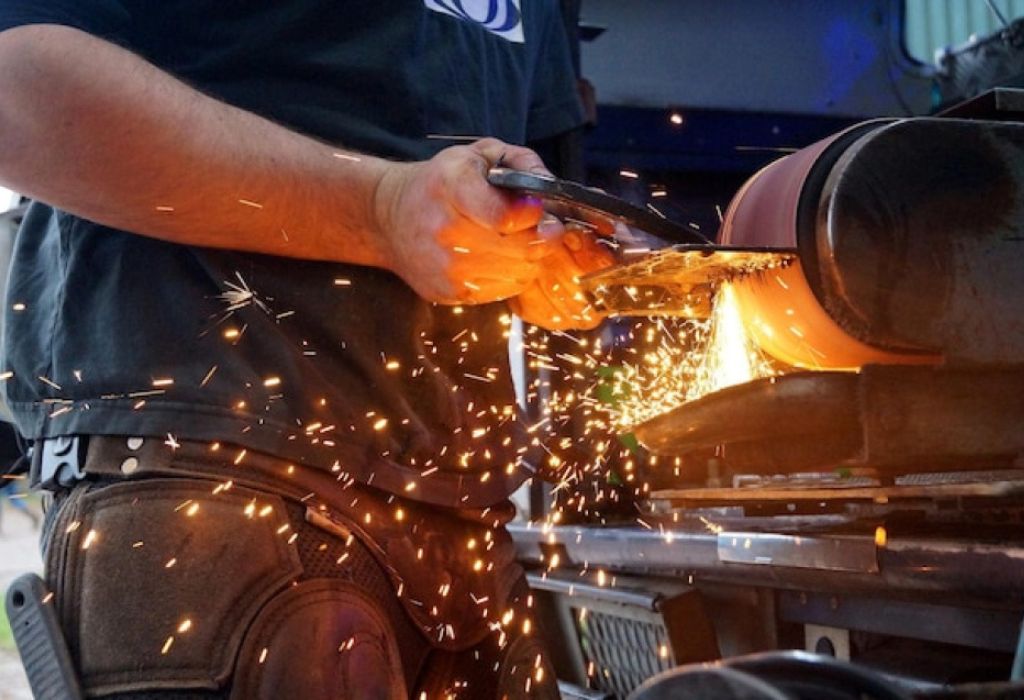
Some states and cities pay inspectors far above national averages. New York averages nearly $74,000 annually.
The San Francisco Bay Area offers even higher pay, reflecting cost of living and project complexity. Other high-paying regions include Texas, Louisiana, and California.
Which states pay above average?
New York, California, and Texas lead in pay scales.
Do coastal cities always pay more?
Often yes, especially where demand and costs are high.
How to verify local pay?
Check postings on job boards by city.
Can per diem exceed base raises?
Yes, on long projects per diem adds substantial income.
How to compare offers?
Annualize hourly, overtime, per diem, and benefits.
Sample Compensation Scenarios
To understand how much inspectors actually make, it helps to run scenarios.
A staff welding inspector at $32/hour, 40 hours per week, earns about $66,500 annually.
A traveling CWI at $35/hour with 10 hours of overtime per week and $120/day per diem can exceed $100,000 annually.
Inspectors working during outages or shutdowns can push well into six figures with overtime and stipends.
What’s a realistic first-year total?
$55,000–$70,000 for entry-level inspectors.
Senior inspector with overtime?
$95,000–$120,000+ depending on project type.
Contract vs staff?
Contract roles often pay more cash but fewer benefits.
Biggest variable?
Overtime and per diem length.
How to sanity-check offers?
Compare against job postings in your area.
Conclusion
How much do welder inspectors make depends on a mix of certification, experience, industry, and location. While averages range from $65,000 to $90,000, senior inspectors with the right credentials often cross six figures.
The best strategies to maximize income include pursuing CWI, adding NDT Level II or API certifications, and targeting industries like oil and gas or power generation. Overtime and per diem further increase annual pay.
For anyone considering this career, welding inspection offers a secure and profitable path. By investing in the right skills and choosing the right projects, inspectors can achieve both financial success and professional growth.

I’m Darrell Julian, the founder, lead writer, and hands-on welding enthusiast behind ArcWeldingPro.com. With more than 15 years of real-world welding experience, I created this platform to share what I’ve learned in the field, in the shop, and in the heat of the arc.

